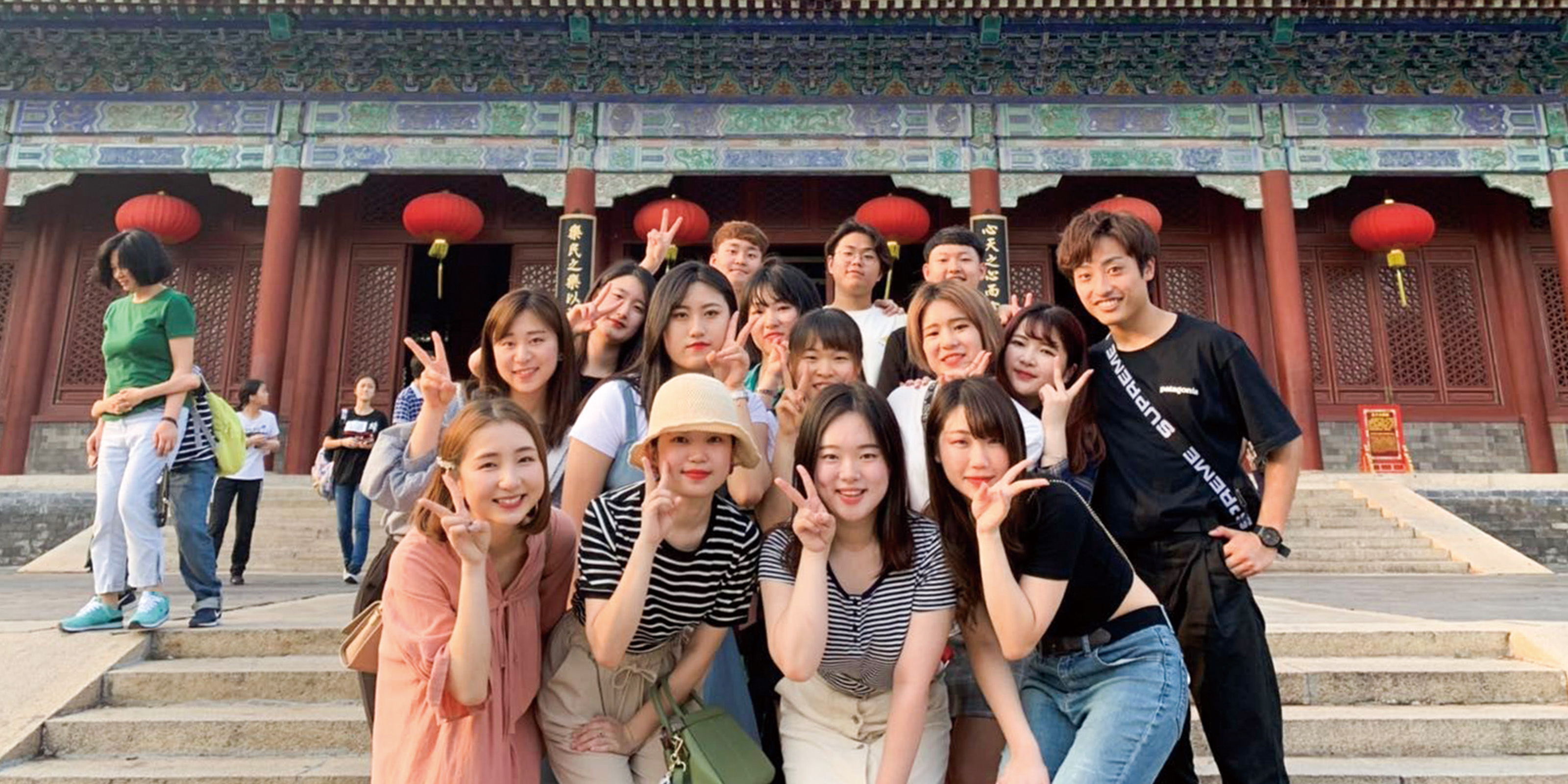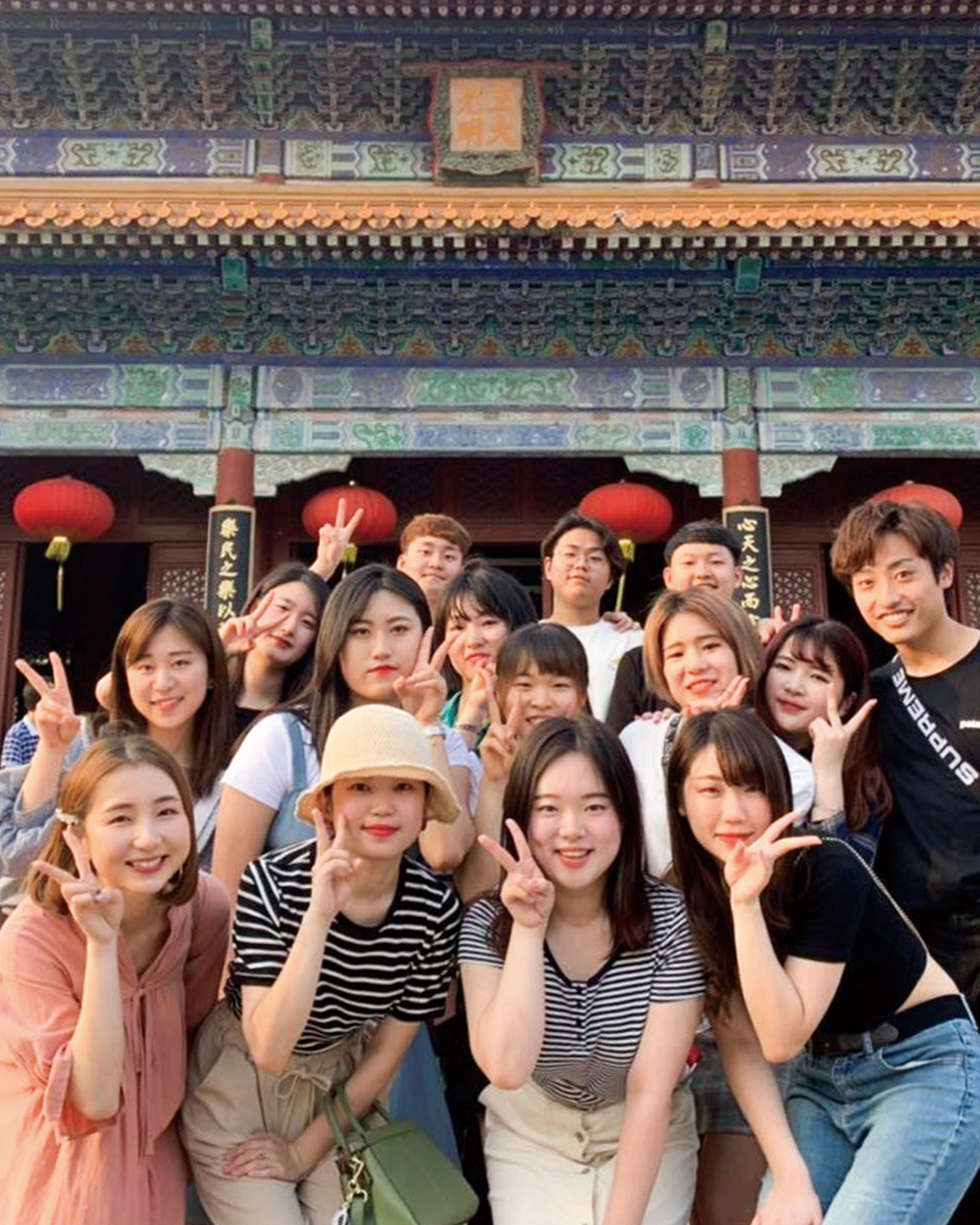Studies in the Campus Asia Program
Profile of character that the program aims to cultivate
- HOME
- Studies in the Campus Asia Program
- Profile of character that the program aims to cultivate
Fostering Global Leaders in East Asia
An East Asian Global Leader is a person who possesses an education in and knowledge of the humanities as it relates to East Asia and who can seamlessly promote activities within international organizaitons, groups, and societies. Specifically, the program aims to cultivate individuals with the following four characteristics.
| Knowledge | Possesses a practical command of the Korean, Chinese, Japanese and English languages, and has a deep knowledge and understanding of East Asian culture, society, and history. |
|---|---|
| Behavior | Experiences local situations first-hand, has direct exchanges with local people, considers and analyzes issues inherent to East Asia from a global perspective and works toward solutions through a well-balanced knowledge of humanities founded on people, societies, history, and lifestyle. |
| Communication | Communicates evidence-based opinions as well as listens to different opinions in international settings, organizations, and communities where people with diverse languages and cultural backgrounds gather, exercising cross-cultural understanding and multi-cultural coordination skills to seamlessly promote community activities. |
| Career | Actively participates in and contributes to the creation of a multi-cultural, multi-lingual, cooperative environment among enterprises, public agencies, education & research institutions, NPOs, local volunteers, clubs and local communities, operating in East Asia and other surrounding parts of the world. |


Three Competencies to be Acquired
-

Foreign Language Proficiency
As a foundation for playing and active role in East Asia, students learn Chinese and Korean simultaneously, and develop practical operational capabilities. Furthermore, students participating in the newly established AG course will take specialized courses administered in English on the richly international APU campus along with international students from around the world in order to develop practical English skills. Students should aim to achieve level 5 or higher in the Chinese Proficiency Test (HSK) and Test of Proficiency in Korean (TOPIK).
-

Specialized Knowledge of East Asian Humanities
Each university offers a group of specialized subjects designed to promote a deep understanding of East Asian humanities—East Asia Humanities Subjects—in which CAP students learn in the local language during the Joint Campus. Through the use of language as a tool, students acquire specialized knowledge that will enable them to consider and analyze East Asia from a global perspective. Based on these studies, in their fourth year, students write a graduation thesis and an abstract of the thesis written in the three languages of CAP.
-

Communication Skills for International Collaboration
CAP students develop cross-cultural understanding and multi-cultural adjustment skills required for international collaboration, through both Joint Campus classes and dormitory life during their second and third years.
In class, teams made up of students from all three countries engage in debates and projects.
In dormitories, students develop independence and leadership through co-residence with Chinese and South Korean students while diverse norms and ways of life intermingle.

